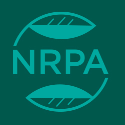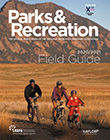
Five Tips for Writing a Competitive Session Proposal
Review Our Scoring Rubric
The Conference Program Committee uses a five-part scoring rubric to review every proposed session on its own merits. Committee members consider the originality and relevance of a proposed submission and the extent to which it demonstrates inclusivity and diversity in its content and speakers. Finally, the Committee assesses the overall quality of each submission. Successful session submissions will reflect the aspirations and standards outlined in the scoring rubric. Take time to review the rubric and consider how your proposal will explicitly meet the standards set there.
Respond to Timely Trends and Topics
The Conference Program Committee has identified specific trends and topics that are immediately relevant to park and recreation professionals in 2024. From succession planning to seasonal hiring, conference attendees are eager to hear the “latest and greatest” insights coming from their peers in the field. Take time to review the list of trends and topics we are looking for in next year’s session submission pool and consider proposing a session that speaks to the needs that have been identified.
REVIEW THE TRENDS AND TOPICS HERE.
Write Rigorous Learning Objectives
Learning objectives are like a contract between you, the knowledgeable speaker, and the audience of practitioners attending your session. What should your audience be able to think, do, or feel differently by the time they’re done observing your talk or panel discussion? Don’t tell us what attendees will “learn” or “understand” because of your presentation. Instead, tell us 1) what specific actions they will be able to take with the knowledge you’ve shared; 2) what specific concepts they will grasp; and 3) what specific values or perspectives they will come to appreciate.
REVIEW A LIST OF ACTION VERBS FOR LEARNING OBJECTIVES.
Keep it Simple, Slim and Specific
Less is more — the most effective presentations focus on a small number of concepts. Consider the success of TED Talks, which almost always focus on one key idea and no more than seven to ten supporting ideas. Conference education sessions are short; speed sessions even shorter. Instead of cramming many different concepts, skills, and perspectives into your session proposal, curate your content to the essentials. We don’t want you to cover everything. We want you to cover the most important thing. Consider using lists to communicate new ideas and step-by-step descriptions of process to communicate new skills, borrowing from the popular “listicle” format.
REVIEW TIPS FOR WRITING LISTICLES HERE.
Plan the Presentation — Then Summarize for Submission
Often the most effective session proposals are those summarizing presentations that speakers have already created or delivered in the past. Consider this — it’s very difficult to summarize something that doesn’t exist yet. Consider crafting your presentation before you write up a description for our consideration. Even if your session is not selected for Conference 2024, you likely will find another use for it at a future conference or at any number of other peer learning opportunities throughout the year.
| Access Date | Quiz Result | Score | Actions |
|---|


Engage With Us